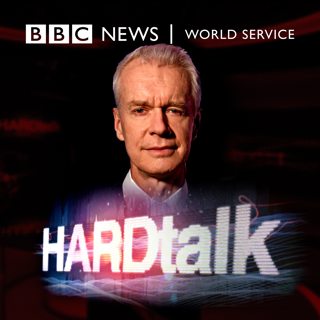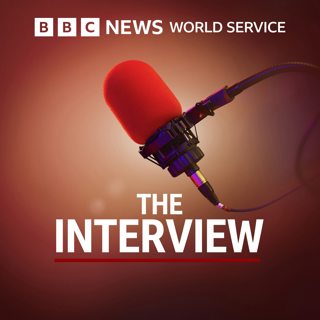
Andris Sprūds: Is Latvia on a war footing?
Stephen Sackur speaks to Latvia’s defence minister Andris Sprūds. He wants to ramp up military support for Ukraine, and he backs Kyiv’s dramatic push into Russian territory. But will divisions inside Nato and the EU leave Ukraine short of the backing it needs?
30 Elo 202422min

Neil Lawrence: Being human in the age of the machine
Stephen Sackur speaks to leading artificial intelligence researcher Neil Lawrence. He’s Professor of Machine Learning at the University of Cambridge and has a Senior AI Fellowship at the Alan Turing Institute. His new book – The Atomic Human – explores the transformational potential of artificial intelligence, while reflecting on the qualities of the human mind that cannot be replicated by even the most sophisticated machines.As more and more aspects of our lives are impacted by the rollout of machine learning, as control of big data and the development of algorithms to exploit it becomes a source of immense power in the 21st century, tech futurists are divided on whether we should embrace AI or fear it. In the end what will matter most isn’t the technology but the humans who develop and deploy it. Should we have faith in ourselves to get it right?
28 Elo 202423min

Nicola Procaccini: How has hard-right rule changed Italy?
Stephen Sackur is in Rome to talk to Nicola Procaccini, an MEP and confidant of Prime Minister Georgia Meloni. When her nationalist Brothers of Italy party took power, it sent shock waves through Europe. A couple of years on, how has hard-right rule changed Italy?
25 Elo 202422min

Olha Stefanishyna: Does Ukraine's Russia offensive make sense?
Stephen Sackur speaks to one of Ukraine’s Deputy Prime Ministers, Olha Stefanishyna. Kyiv’s military offensive inside Russia has shifted the dynamic in what looked like a war of attrition tilting in Moscow’s favour. But does this dramatic gambit make strategic sense, or is it an act of desperation?
21 Elo 202422min

Karuna Nundy: Human rights and justice in India
Stephen Sackur speaks to the prominent Indian lawyer Karuna Nundy. She has been at the forefront of long battles to better protect women from sexual violence, legalise gay marriage and safeguard freedom of speech. Is she losing this fight for India’s future?This episode contains references to rape and sexual assault.
19 Elo 202422min

Shannon Watts: Will the votes of white women swing the Trump-Harris race?
Stephen Sackur speaks to Shannon Watts, an American political activist who built a powerful women-led gun control movement and is now a fund-raiser for Kamala Harris. Why does she believe the votes of white women will swing the presidential race?
16 Elo 202422min

Pavel Latushka: Can change in Belarus only come with change in Moscow?
Stephen Sackur speaks to Pavel Latushka, a key figure in the opposition movement struggling for regime change in Belarus. The country’s authoritarian ruler Alexander Lukashenko is a staunch ally of Vladimir Putin - does that mean change in Minsk can only come with change in Moscow?
14 Elo 202422min

Ian Goldin: Is migration a drag or a driver of progress?
Stephen Sackur speaks to the renowned economist Ian Goldin, who wants to reframe the debate around migration. He’s been a senior official at the World Bank, an economic adviser to Nelson Mandela and he’s now professor of globalisation and development at Oxford University. His latest book, The Shortest History of Migration, illustrates the centrality of movement to the evolution of humanity – from the earliest human travellers leaving East Africa some 300,000 years ago to all of the people seeking sanctuary and prosperity across today's national borders.Migration is, right now, a hot and contentious topic. Powerful political voices across the world link migration with insecurity, crime and cultural breakdown. Others say migrants bring new ideas and energy and are vital to economic growth. It seems no amount of border security will stop people wanting to move; indeed, global heating and political instability are likely to see the numbers increase. Will migration, and how we deal with it, be the defining issue of this century?
12 Elo 202423min






















